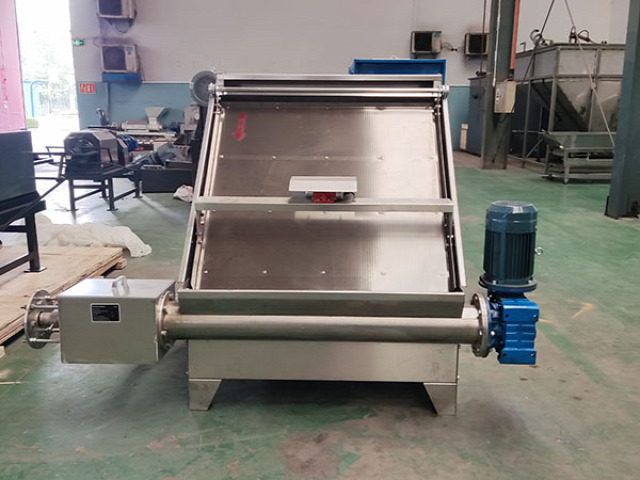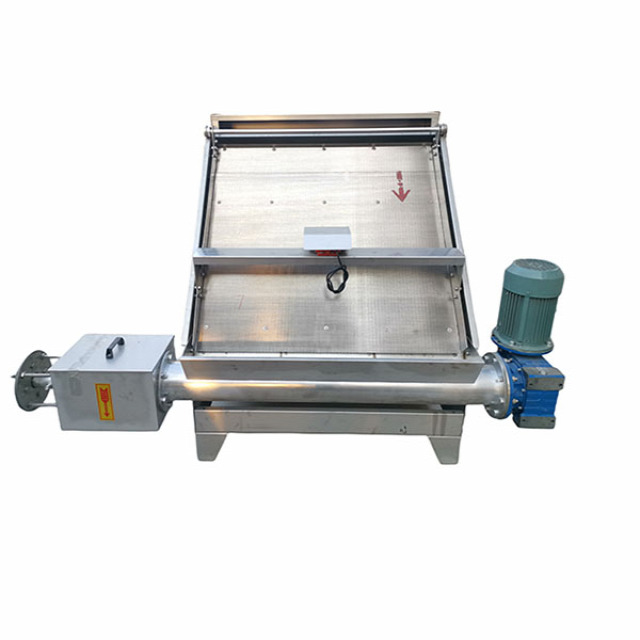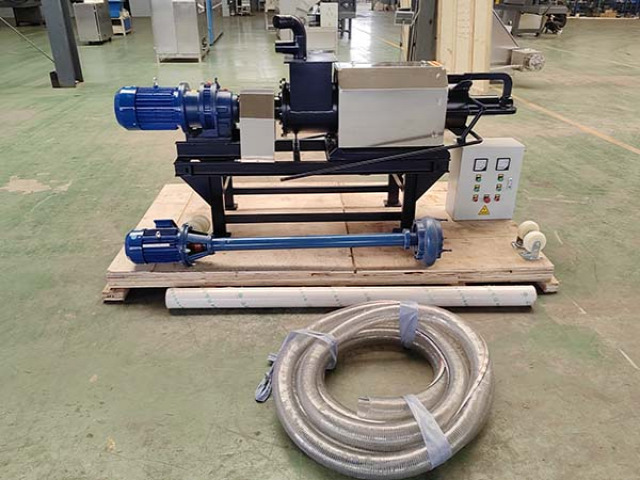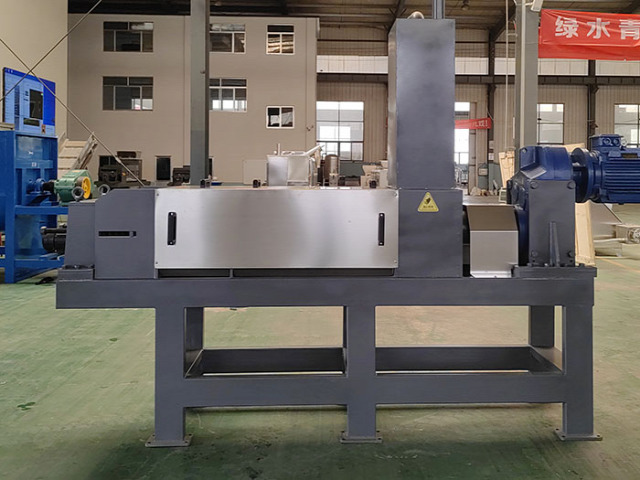As awareness of environmental protection and the principles of sustainable development continue to rise, effective waste management has become paramount. In this context, screw press machines for fruit and vegetable waste dewatering have gained significant attention. These machines utilize a combination of mechanical pressing and separation processes to remove moisture from organic waste, making them an invaluable tool in the pursuit of eco-friendly waste management.
Mechanical Press
One of the fundamental principles behind fruit and vegetable waste dewatering involves mechanical pressing. This process harnesses the power of pressure to squeeze moisture out of the waste materials. Typically, the equipment consists of a rotating screw shaft and an external sieve. When fruit and vegetable waste is introduced into the machine, the screw shaft initiates its rotation, pushing the waste forward. During this advancement, the screw applies increasing pressure, effectively extruding the moisture from the solid waste.

Separation Process
Another critical principle at play in these machines is the separation process. Simultaneously with mechanical pressing, an internal sieve within the equipment acts as a filter. As the fruit and vegetable waste undergoes compression, the moisture is forced to pass through the sieve, while the solid components are retained. This efficient separation ensures that water and solids are effectively isolated. The separated water exits the machine through a drainage outlet, while the solid waste continues to be pressed until most of the moisture is removed.
Operating Process
The operational process of fruit and vegetable waste dewatering machines generally encompasses the following steps:
1. Feeding: Introduce the fruit and vegetable waste into the screw press machine, initiating the dewatering process.
2. Mechanical Pressing: The internal screw shaft starts to rotate, applying pressure to the waste, expelling moisture from the solid portion.
3. Separation: Simultaneously, water is forced through the sieve, and the solid waste is obstructed by it.
4. Drainage: The separated water is directed out of the machine through a drainage outlet for further treatment or recycling.
5. Solid Waste Collection: After dewatering, the solid waste retains a significantly reduced moisture content, making it easier to manage through incineration, composting, or other disposal methods.

Advantages and Applications
Screw press machines for fruit and vegetable waste dewatering offer several advantages:
1. Volume Reduction: Dewatered solid waste occupies less space, facilitating its subsequent handling and transportation.
2. Pollution Mitigation: The separated water contains organic matter, reducing water pollution.
3. Resource Recovery: Dewatered solid waste can be more easily recycled and reused.
These machines find wide-ranging applications in restaurants, supermarkets, food processing plants, and similar settings, where they effectively manage kitchen waste, fruit and vegetable scraps, and more. By reducing waste volume and environmental pollution while promoting resource recycling, screw press machines contribute significantly to environmental conservation and sustainable development.
Conclusion
In conclusion, screw press machines for fruit and vegetable waste management employ mechanical dewatering process to efficiently separate moisture from solid waste. Their advantages, including volume reduction, pollution mitigation, and resource recovery, make them invaluable tools in the pursuit of environmental protection and sustainable development. These machines play a crucial role in reducing the environmental impact of organic waste, aligning with the growing global commitment to responsible waste management.







